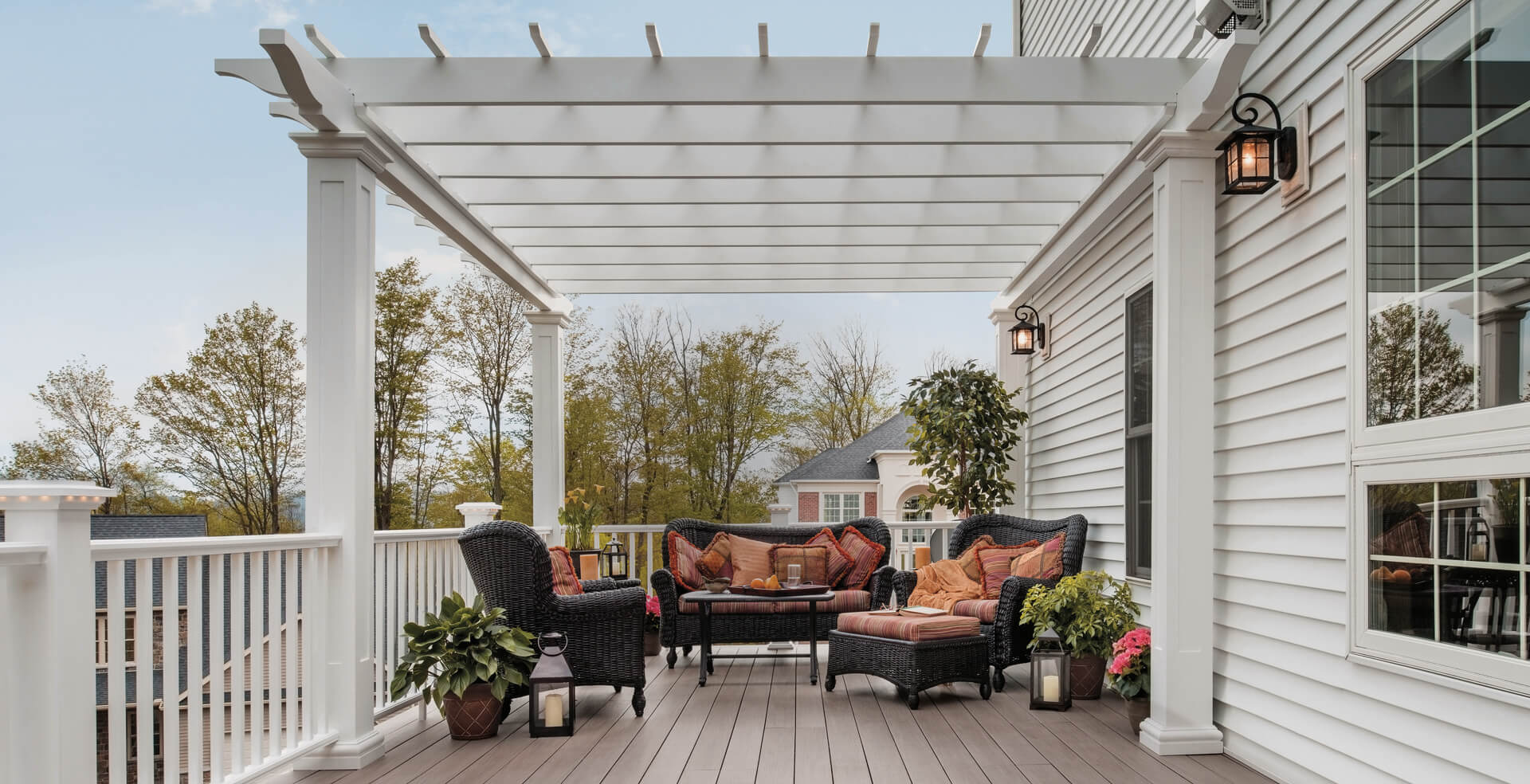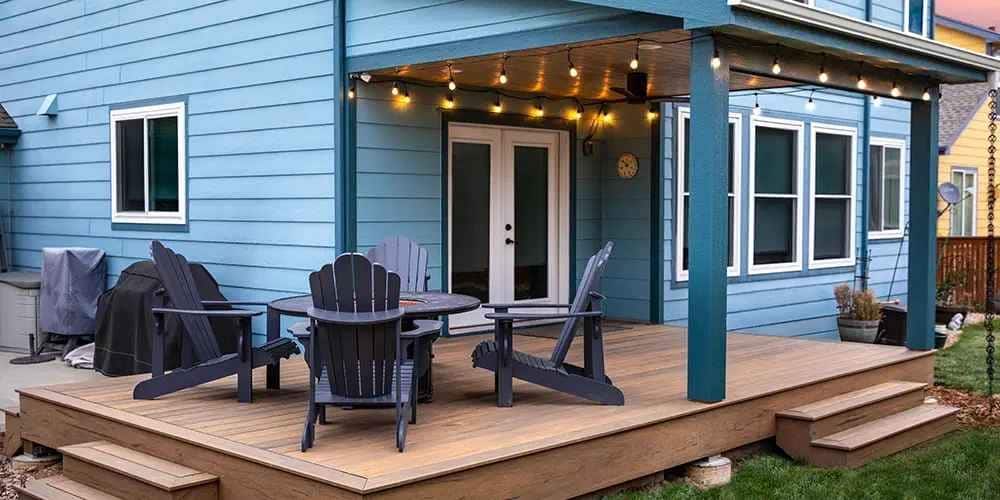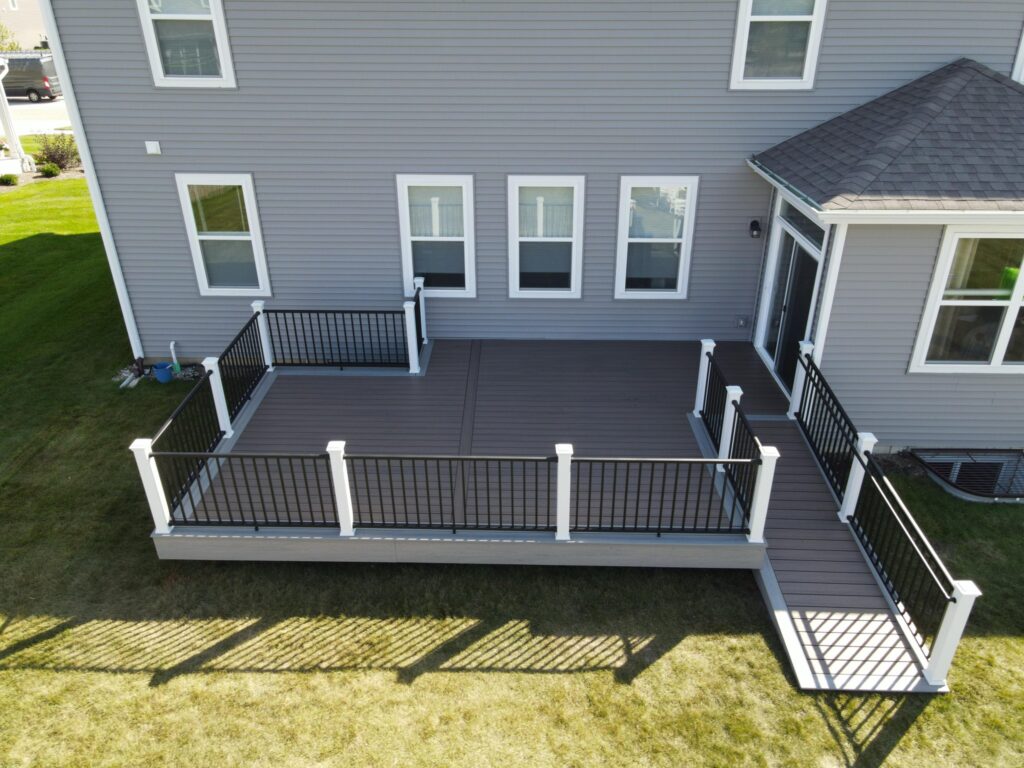Exploring Different Kinds and Advantages of Deck: A Comprehensive Guide
The exterior deck is more than just an extension of one's living room; it's a testimony to personal design, a venue for social celebrations, and a sanctuary to relax. The selection of decking product considerably influences these elements, with options ranging from the traditional allure of timber to the usefulness of composite, and the resilience of aluminum. Comprehending the nuances of these products is necessary, so let's begin our expedition, one deck kind at once.
Recognizing the Basics of Outdoor Decking Product
Outdoor decking product acts as the backbone of any deck job, determining the overall appearances, durability, and performance of the end product. The marketplace uses a substantial series of products, each with special characteristics fit to different design choices and ecological conditions. The selection consists of natural wood, composite, plastic, aluminium, and even concrete. Timber, being the typical option, gives a classic, classic appeal. Compound, a combination of wood and plastic, provides wood-like visual appeals with less upkeep. Plastic and aluminium offer contemporary, minimalistic options, while concrete is preferred for its unrivaled resilience. The choice of product substantially influences the deck's life-span, maintenance needs, and resistance to aspects. Recognizing the fundamentals of decking material is crucial for a successful deck project.
Benefits and Downsides of Wood Decks
In examining deck types, recognizing the benefits and drawbacks of timber decks becomes vital. This includes thinking about factors such as the sort of wood selected and its effect on the deck's efficiency. The subsequent discussion will certainly discover these points thoroughly to offer a thorough view of the advantages and downsides connected with timber decks.

Wood Deck: Disadvantages & pros
The charm of wood decks can not be overstated. They show a classic appeal and cozy aesthetic that numerous property owners find tempting. This natural product is flexible, enabling a range of style possibilities, and can offer an excellent roi.
Nonetheless, wood decks likewise come with particular disadvantages. Its longevity can be less than various other decking materials, specifically if not appropriately cared for.
Choosing Your Timber Kind

Exploring the Advantages of Composite Decking
Transforming attention to composite decking, it supplies unique advantages. Its toughness surpasses standard timber in severe weather conditions, minimizing the need for constant upkeep. Moreover, it offers a pleasing visual charm with variable design alternatives.
Composite Decking Sturdiness Advantages
In spite of the wide variety of outdoor decking choices offered in the market, composite decking stands apart for its sturdiness. This kind of decking, made from a blend of wood and plastic, provides a resistant, resilient system immune to aspects that normally break down other products (Trex Deck Builders Near Me). It does not splinter, split, or warp, guaranteeing a continually smooth surface area for many years. It's immune to damage from pests such as termites, adding to its durability. The inherent resistance to fading, discoloration, and scratching is another remarkable advantage. This makes it a perfect option for high-traffic locations or outdoor rooms subjected to extreme climate condition. In summary, the durability advantages of composite decking supply a sustainable, cost-effective solution for outside living spaces.
Upkeep of Compound Decks
Along with sturdiness, composite outdoor decking flaunts a major benefit in regards to upkeep. Unlike typical wood decks, composite decks are not vulnerable to rot, warp, or insect damage, hence substantially lowering the need for regular repair work and substitutes. They also require no staining, painting, or sanding, making them a time-saving choice for homeowners. Cleaning up a composite deck is a simple job, typically just calling for a move or a mild clean with a moderate soap and water. The low-maintenance nature of composite decks not just gives convenience of maintenance however likewise adds to their long-lasting cost-effectiveness. This functional benefit, incorporated with the material's integral resistance to weathering and decay, makes composite outdoor decking a favored selection for many individuals looking for a hassle-free and sturdy outdoor decking solution.
Aesthetic Allure and Irregularity

The Increasing Popularity of Light Weight Aluminum Decks: Why Select Them?
As the demand for low-maintenance and resilient decking rises, aluminum decks are progressively ending up being the best option for many homeowners and contractors. These decks, made from a lightweight yet durable steel, offer numerous benefits over conventional wood or composite decks. To start, light weight aluminum is normally resistant to the elements, indicating it won't warp, split, or discolor over time. This makes it a cost-efficient choice in the lengthy run. Furthermore, its non-porous surface protects against the development of molds, fungis, or insects, making certain a tidy and try these out healthy outside space. Light weight aluminum decks are likewise environmentally pleasant, as they are commonly made from recycled materials and can be reused again at the end of their lifespan. Their streamlined and contemporary aesthetic charm fits well right into contemporary home layouts.
Upkeep Tips for Different Decking Products
In spite of the selection of outdoor decking materials offered on the market, each includes its very own set of maintenance requirements to make certain durability and visual appeal. Natural wood decks call for routine tarnishing or securing to avoid weather condition damages, while composite decks require routine cleaning with soap and water to remove stains and debris. On the various other hand, aluminum decks need less upkeep, just requiring occasional washing with water to keep them tidy. Dealt with timber decks, although resistant to rot and insects, likewise need frequent sealing to keep wetness out. Therefore, recognizing these maintenance needs is vital for deck owners to maximize their investment and keep their decks looking their best for years to come.
Aspects to Consider When Selecting Your Deck Type
Composite decks resist moisture well, making them optimal for humid or rainy areas. While some may desire a lavish, exotic wood deck, spending plan restraints might demand an extra cost-effective selection like pressure-treated wood. Therefore, climate, way of life, expense, and upkeep are key factors to consider in deck option.
Conclusion
Timber decks enchant with all-natural beauty, while composite and light weight aluminum ranges offer sturdiness and low upkeep. Prior to dedicating to a certain deck kind, house owners ought to carefully consider the benefits, disadvantages, and upkeep needs of each product.
In reviewing deck kinds, comprehending the pros and cons of timber decks basics comes to be important.In spite of the wide variety of decking choices available in the market, composite decking stands out for its resilience. Unlike traditional timber decks, composite decks are not susceptible to rot, warp, or insect damages, therefore drastically reducing the requirement for regular repair services and replacements. These decks, made from a light-weight yet durable metal, provide numerous advantages over standard timber or composite decks. Natural wood decks call for routine discoloring or sealing to stop climate damage, while composite decks require periodic cleaning with soap and water to remove spots and particles.